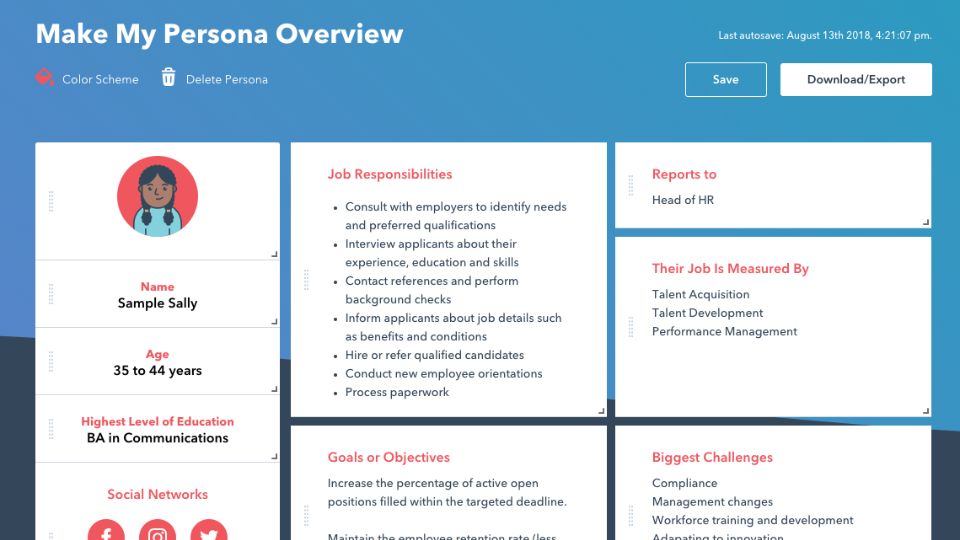Once your business is available online, another channel to stay connected with your customers is an application. Building one for yourself is really tempting as mobile apps take around 4 - 5 hours of user time per day. Last year alone, apps were downloaded 230 billion times worldwide, and it seems like almost every business has an app.
You may wonder why mobile apps have become so popular. As we all have smartphones, it means that there is a pool of customers out there that businesses can target online. People can order food, buy products, pay bills, read books, check the traffic, organize their tasks, set a reminder, etc., all through different applications on their mobile phones.
But hold on, before following the trend, ask yourself: “Does my company really need a mobile app?” There are 3.3 million applications on Google Play; however, 68 percent of Android apps have lesser than 1,000 times of downloads. For the Apple App Store, there are 2.2 million applications available, but the average app retention rate after a month is only 4.13 percent.
If you don’t want to fail as most apps do, we’ve got you covered! We have compiled the top 5 questions you can ask yourself and your team before putting your time and effort into building something that wouldn’t work.
1. Who are your customers?

Customers are the foundation of the business and, of course, its products. Your app has to deliver value to your customers and make them stick around and use it. It’s important to understand them and then shape your app around their behaviors.
You can start by creating personas for your app. You should be able to plot out information such as demographics, interests, personality, motivations, habits, pain points, technology, and preferred channels for each of the personas you create. And then give them a name and bio so you feel connected more to them as humans. Also, note that the elements that you put in for your personas should be related to your business. Put only useful details in, they may look different from other types of businesses, but if they work for you, that’s enough.

If your business has been running for a while, you already have customer data, so you can use that to create personas. You can also interview and talk to them to gain more insights. On the other hand, if your company is still new and does not have much customer data, it is vital to conduct user research to understand them more in different aspects.
From the personas you get, check if creating an app will suit them.
- Will a mobile app solve their problems?
- Where do they mostly spend time on?
- How often will they use your app?
After you define your customers clearly, you will have an idea about the UX/UI design that will match them. You will also know what features to include in your app and will be able to cut out those that are unnecessary. In addition, you will also know if you should prioritize just one platform or go for both iOS and Android. Overall, it will help your business reduce development costs.
2. What kind of business do you have?

Businesses from different industries, such as education, healthcare, telecommunications, food, shipping, banking, e-commerce, etc., whether targeting B2B or B2C clients, can benefit from having a mobile app. But looking at the industry as a whole is not enough; let’s take a closer look at your company. Will users be able to use your products or services on a mobile app, or are they more comfortable using them on a desktop or laptop? Maybe there is a lot of information to type in, and there are features that perform better on a bigger screen. If that’s the case, you may want to focus on a website or a web app instead, which we, OOZOU, also offer these services.
If your business has a lot of offline touchpoints with your customers, you have to examine whether a mobile app will provide a seamless experience between the online and offline channels.
Suppose you think that mobile apps align with your business objectives. In that case, you can later start considering the app categories, such as games, education, lifestyle, finance, social network, productivity, etc., that match your industry and target customers.
3. How are your competitors doing?

Every business has competitors. Conducting competitor research will help you understand a bigger picture of your market, and also you will know what their strengths and weaknesses are. You can find out what’s lacking and what you can fulfill for your customers that others cannot.
Take a look if any of your competitors already have a mobile app. Also, see what other channels they have and what services they offer on each channel. If most of them already have an app with a lot of tractions, maybe it’s time for you to catch up with them.
However, if none of the competitors has a mobile app yet, but from the first two questions, you found out that an application will make you more competitive than the others in your industry, then it could be a strategic move for your company.
4. What are the goals of your app?

After you do all the market research and fully understand your target audience, it’s time to set clear goals and objectives for an app. Think about the results your company would like to achieve with a mobile app.
There are many goals of the applications. Some of the examples are
- Increase brand awareness
- Grow more users
- Keep users engaged
- Gain more profit from your existing revenue stream
- Become a new channel of revenue
- Improve customer satisfaction
- Build brand loyalty
- Gain competitiveness
Make sure that the goals that you have set go accordingly to the overall marketing goals of the company, and a mobile application will definitely be a great channel for your business.
5. What are the timeline and budget?

Last but not least, always consider the timeline and budget that you have. How much money you need to spend and how long it will take actually depend on the app’s type, size, functionality, complexity, development approach, etc.
In addition, the price can vary based on the engagement model. For example, at OOZOU, we offer different types of engagement models based on your flexibility on timeline and budget.
Practically, building an app that meets customer needs and resonates with your business goals can take around 3 months to more than a year since there are many different stages to go through, as well as various testing and validation along the way.
If you’re not sure where to start, get a free consultation with us. We are a design-driven team that has helped over 200 companies create successful digital products, and we can help you fine-tune the idea, estimate the cost and timeline, and find the right solution for your company.
Now we hope you have a clearer idea of whether a mobile app is a go or a no. Building an application is a lot of work, and it requires time and money, but if it’s suitable for your business, investing in one will help you achieve your business goals while keeping your customers happy.


Ready to start your project? Contact Us
